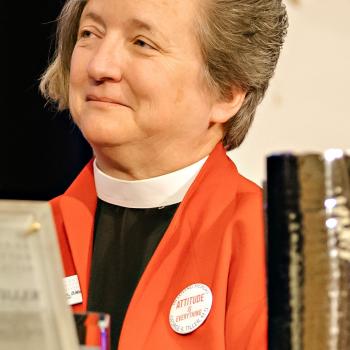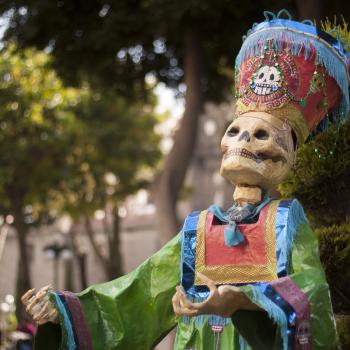Can you be a moral person without religion? Yes and no. It all depends on what you mean by ‘moral’ and what you mean by ‘religion’. What most people mean by ‘moral’ in our society is “Try to be a nice person. Be normal. Have relatively good manners. Don’t do any of the big bad ones like killing someone or stealing or being a pervert. Be involved in a good cause of some sort–like the soup kitchen or saving the Amazonian rain forest.” Morality for the post Christian masses doesn’t really have anything to do with a set moral code or particular rules to follow. It is more a sense of ‘feeling that you are a moral person’. Part of this feeling ‘moral’ is tolerance of everyone else and outrage at hypocritical Christian type people who try to force their version of ‘morality’ on others. So can you be ‘moral’ in this way without being religious? Of course. In fact true religion would be downright counterproductive to this sort of ‘morality’. But they don’t mean ‘true religion’ they mean ‘going to church.’
Can you be moral without going to church? Yes. Just like you can be immoral and go to church. However, there is more to it than that.
What people in our society have done, of course, is to mistake ‘amoral’ for ‘moral’. This is a morality of a seeming absence of evil rather than a presence of good. This is nowhere more obvious than in the area of sexual morality. The modern person is ‘moral’ if he or she makes hardly any judgment about sexual morality. When it comes to sexuality there are few taboos. Incest, pedophilia, rape and bestiality are still frowned on, but any other sexual deviation is considered morally neutral.
What this indicates is that the ‘moral’ irreligious person has great blank areas where their ‘morality’ is either missing or poorly thought through. Do ‘moral’ modern people ever think about any of the seven deadly sins, for instance? For them is gluttony immoral or just gross? Is greed immoral? Probably only when it is vulgarly displayed. Is envy immoral? What’s that? Is Sloth immoral? What’s that?
In fact, one can be ‘moral’ without religion if one defines ‘moral’ however you wish. In fact, this being so, the irreligious moral person really has only one defining moral principle: “Do what you will, but harm no one.” This, of course, is the core creed of witchcraft. So can one be ‘moral’ and not religious? In the end, No. He is still being religious. (that is he follows some sort of belief system) It’s just that his belief system or religion is witchcraft rather than Christianity.
Christianity demands morality and teaches morality not because it is a religion of rules, but because the rules are there to discipline us to achieve the Christ like state to which we are called. At the same time morality is the fruit of true religion. The truly moral person has stopped simply obeying rules and begins to live and love the way of life that the rules recommend. Practicing the Christian religion trains a person in morality and helps one to learn how to grow in virtue. Trying to be moral without religion is like trying to become a concert pianist by playing chopsticks over and over.
This is being truly religious and truly moral..to finally be transformed by goodness into goodness–St Benedict says that the monk, “After many years doing what is right, finally does those things which he once did out of duty, out of love and joy.”











